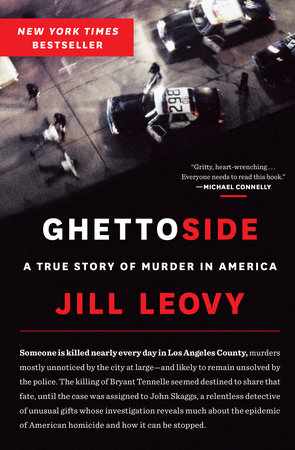Ghettoside: A True Story of Murder in America
Jill Leovy
I know 3 stars seems bad, but it's really not. I think that this book is very much needed and gives incredible insight into the disaster that is California's gang life as well as police procedures and interrogations, but I think that there are certain things I wish were done differently.
First I would like to say that Leovy's writing style was much better than I expected. This read like a true story, but with loaded with research and interesting information. The book was written to bring attention to what actually happens in South Central California, including the homicide unit. It shows how the area is actually in need of more policing, which is leading to the surmounting amount of deaths of black people, specifically young men (or 'black on black crime' as people mistakenly refer to gang violence).
The book follows a few cases, but mostly one of the Tenelle family. Wally Tenelle actually worked on the police force in the area, and his son was shot in the head (mistaken for a banger) assumingly because he was wearing a hat associated with a gang. The case is interesting, but I'm sure there are plenty like it that don't get the same attention. I know the point of the story was showing that there are certain good cops who treat every case the same or as 'someone's baby', but we also know that this is not always the case. I'm glad to see there are good cops who are willing to deal with demotions in order to help people that actually need it, and are willing to live in the area they work even if it's considered a war zone by others. However, I felt like the story would have been much more impactful if the author had picked a case that remained unsolved (as most of the murders often do), instead of a lucky case with semi-cooperative witnesses. The book often says that the case is like all others over there, but it also says that the officers got lucky on tips most of the time. If most cases go unsolved, why not pick a case that represents the majority? But that's just my opinion.
Overall, it was really eye-opening.


No comments:
Post a Comment